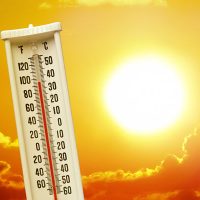Does Homeowners Insurance Cover Heat Damage?

Florida is dubbed the Sunshine State for good reason. On average there are 237 sunny days a year in the state, which is great when people want to spend a day at the beach, on the golf course, or take their boat out for a ride. Studies have shown that 2023 was the hottest year on record in Florida, and those temperatures are not about to cool down any time soon.
While the heat is one of the biggest benefits for residents of Florida, it also brings with it its own challenges. Heat can greatly damage certain parts of a home and when it does, homeowners often wonder if their insurance covers this type of damage. Below, our Daytona Beach residential property damage lawyer explains the most common types of heat damage, and whether it is covered.
How Does Heat Damage a Home?
The heat in Florida is notorious for causing damage to building materials and structures. All of the surfaces used in the construction of your home, from the concrete to the wood, all expand and contract with fluctuating temperatures. This continued movement can lead to visible warping, cracks, and weaknesses in the home’s structure. Some of the most common ways heat damages a home include:
- Attic and roof damage: Of all the different elements of a home that will bear the brunt of the sun’s heat, the roof is the most vulnerable to damage. High temperatures can cause shingles to crack and break, which can lead to leaks and decrease the efficiency of the insulation beneath.
- Deteriorating exterior finishes: You have taken great steps to make the outside of your home welcoming. The relentless UV rays, though, can cause paint, siding, and trim to fade, chip, and overall deteriorate.
- Foundation damage: The intense heat in Florida causes the soil to expand and contract, which can result in damage to your foundation. Uneven floors, visible cracks, and doors that stick are signs of foundation damage.
- Mold and moisture: One would think that with the high temperatures, mold and moisture would not be a problem. Not only does Florida experience high heat, but the humidity levels can also climb quite high, leading to mold and moisture issues.
Does Insurance Cover Heat Damage?
Generally speaking, homeowners insurance does not usually cover heat damage. AS a homeowner, you have a duty to regularly inspect and maintain your home and fix any issues that may have arisen. For example, if heat damaged the shingles on your roof, you have a responsibility to correct that condition on your own.
Still, there are times when insurance may cover damage caused by heat. For example, if high wind or hail caused damage to your roof or window and that damage allowed heat to get in, you may have coverage for damage caused by heat and humidity, as well. Determining whether your policy will cover heat damage requires a full analysis of the cause of the damage, as well as your policy.
Our Residential Property Damage Lawyer in Daytona Beach Can Advise on Heat Damage
If your home has been damaged by heat or humidity, you need legal advice to determine if you are eligible to receive coverage. At Bundza & Rodriguez, our Daytona Beach residential property damage lawyer can review your policy to determine what coverage you are eligible for and guide you through the process to help you get it. Call or text us now at 386-252-5170 or chat with us online to request a free consultation.
Source:
washingtonpost.com/weather/2023/08/11/florida-record-heat-climate-summer/

